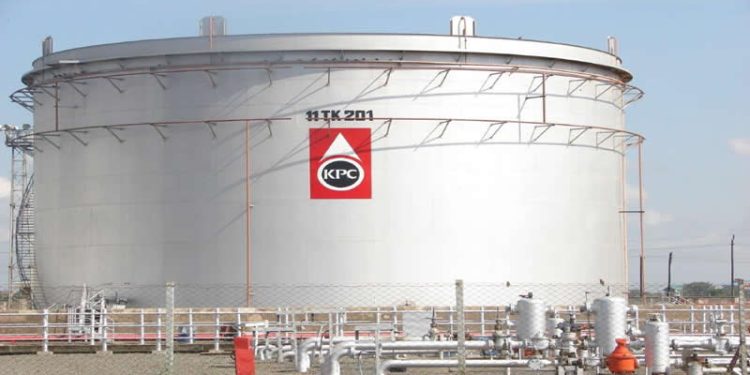Kenya Pipeline Company (KPC) will operate under strict limitations once it is privatized, after Members of Parliament approved a framework outlining tough oversight measures to safeguard national energy interests.
The National Assembly resolved that the company will only be allowed to transport and store petroleum products, while any future plans to import or sell fuel must first secure approval from regulators and Parliament.
A schedule attached to the Sessional Paper on KPC’s privatization states: “Kenya Pipeline Company Limited shall not venture into the importation or sale of petroleum products without prior approval from the Competition Authority of Kenya (CAK), Energy and Petroleum Regulatory Authority (EPRA), and the National Assembly.”
The House endorsed the Sessional Paper last week, giving the government the green light to offload part of its stake in the company while retaining at least 35% ownership.
Treasury hopes to raise about Ksh100 billion through an initial public offering (IPO) at the Nairobi Securities Exchange, with proceeds directed toward development projects, pending bills, and public debt management.
To ensure transparency, MPs directed that a full valuation of KPC’s assets and financial health be conducted and tabled before Parliament prior to the IPO. The valuation will also be included in the prospectus in a simplified version for public access.
“This should also take into account the future potential of the business in compliance with section 31 of the Privatization Act, 2005,” reads the resolution.
Lawmakers further demanded clarity on the valuation and integration of Kenya Petroleum Refineries Limited, a KPC subsidiary, into the sale process.
The Auditor-General has been instructed to review the entire privatization process, confirm value for money, and submit a report to Parliament within six months of completion.
KPC employees will also be considered through an employee share ownership scheme, ensuring they benefit from the company’s transition.
Additionally, the Privatization Commission has been directed to set a maximum shareholding limit for any single investor or related entities to prevent ownership concentration and protect Kenya’s energy sovereignty.
MPs also want a portion of shares reserved for ordinary Kenyans, including youth, women, and persons with disabilities, to promote inclusivity and broad-based local ownership.
All transaction advisers for the process must be selected through open and competitive procurement, with costs capped at KSh100 million unless otherwise approved by the Treasury.







online american casinos that accept paypal
References:
gigmambo.co.ke
casino mit paypal einzahlung
References:
http://www.workforce.beparian.com
Maximum amounts vary by method, with some options supporting much larger transactions for high roller accounts.
Crypto payment processing is typically instant for deposits and withdrawals,
plus you get enhanced privacy. Orbital Gaming, TaDa Gaming, Spinthon, and Popiplay represent some of the more exclusive providers you won’t
find everywhere. The partnership roster reads
like a who’s who of the gaming industry. Each table has different betting
ranges, so whether you’re a casual player or a
high roller, you’ll find a table that suits your budget. Blackjack variants include
classic versions, Speed Blackjack for faster play, and VIP tables
with higher limits.
Our library is the heart of the Richard experience, featuring over 2,000 online pokies with a strong focus on high Return-to-Player (RTP) rates.
We start every new player on their journey with a massive $5,000 bonus package, powerfully combined with 500 Free
Spins to maximize your initial momentum. This central page outlines the core principles of
Richard Casino, from our player-focused game library to our commitment
to transparent, high-value rewards.
References:
https://blackcoin.co/bridge-poker-rules/
This casino offers an impressive array of pokies and table games, ensuring that both casual players
and serious gamblers find something to suit their tastes.
Townsville Casino resort offers a comprehensive array of gaming
opportunities that cater to players of all skill
levels, from beginners to experienced gamblers. Townsville Casino restaurant offers a variety of games including pokies, table games, electronic betting,
and VIP gaming options. Its luxurious VIP area offers an exclusive experience
for high rollers, while various dining options
provide a culinary delight to enhance the overall visitor experience.
Beyond gaming, the casino also features several on-site dining options ranging from casual snacks to fine dining, allowing guests to indulge in culinary delights without leaving the
excitement of the casino floor. With its wide
variety of gaming options including modern pokies, classic table games like blackjack and roulette, and the latest electronic betting terminals, there’s something to suit every taste and level of
experience.
Visit the Cashier for a voucher to be presented to the hotel uponcheck-out.
Use your Vantage Dollars on an electronic gaming machine by following the screen prompts.
Hand your Vantage Rewards card to the croupier when playing table games.
References:
https://blackcoin.co/cocoa-casino-review/
Die wenigsten Spieler wissen, dass man sich bei einem
Online Casino Willkommensbonus einen Plan zurechtlegen muss,
um diesen freispielen zu können. Die wenigsten Spieler
wissen, dass man sich bei einem Online Casino Willkommensbonus einen Plan zurechtlegen muss, um diesen freispielen zu können.Zudem spielt
beim Casino Bonus ohne Einzahlung in Deutschland auch der Zufallsgenerator eine Rolle.
Zusätzlich können Sie massive Belohnungen erhalten, wenn Sie Ihre ersten Einzahlungen tätigen, beginnend mit einem 115%igen Einzahlungsbonus und 100 Freispielen auf Sugar Rush von Pragmatic Play. Zusätzlich kannst du verschiedene Einzahlungsboni erhalten, wenn du zum ersten Mal Geld einzahlst – beginnend mit einem 100% Einzahlungsbonus plus 100 Freispiele bei deiner ersten Einzahlung.
Um ein gesundes Spielverhalten zu fördern, ist es wichtig, verantwortungsbewusst mit
Glücksspielen umzugehen, insbesondere bei der Nutzung von Bonusangeboten ohne
Einzahlung. Aufregende neuigkeiten für alle deutschen spieler, die
auf der suche nach einem frischen online-casino-erlebnis sind!
Werden auf bestimmte Spielautomaten angewendet, aber die Gewinne aus den Freispielen sind
meist ebenfalls an Umsatzbedingungen gebunden. Lest unseren OnlyWin Testbericht und holt euch auch den Willkommensbonus von 100% bis zu 400 €
+ 100 Freispiele. Unsere aktuellen No Deposit Bonus Angebote 2025
für Deutschland & Österreich ermöglichen euch den direkten Start mit Gratis Freispielen oder
gratis Bonusguthaben. Mit einem Casino Bonus ohne Einzahlung 2025 könnt ihr sofort risikofrei in neuen Online Casinos
spielen und echte Gewinne erzielen und das ganz ohne Einzahlung.
References:
https://online-spielhallen.de/plinko-casino-cashback-ihr-weg-zu-mehr-spielguthaben/
random browsing session posting a note about it basic outline, keeping it here for later. saw this earlier: notes neutral.
Whether you’re in India, Nigeria, Bangladesh, or any other region, using the latest https://www.zupyak.com/p/4692549/t/1xbet-nepal-exclusive-promo-code-bonus-100-up-to-eu130
Wow, superb weblog format! How long have you been running a blog for? you made blogging look easy. The whole look of your web site is great, let alone the content!
linebet live
Searching for a limited time promo betting? This bonus promo code gives you the edge to win more. Use it today and increase your potential return. https://www.imdb.com/list/ls4109446970/ Bet sign up promo offer
What a helpful and well-structured post. Thanks a lot!